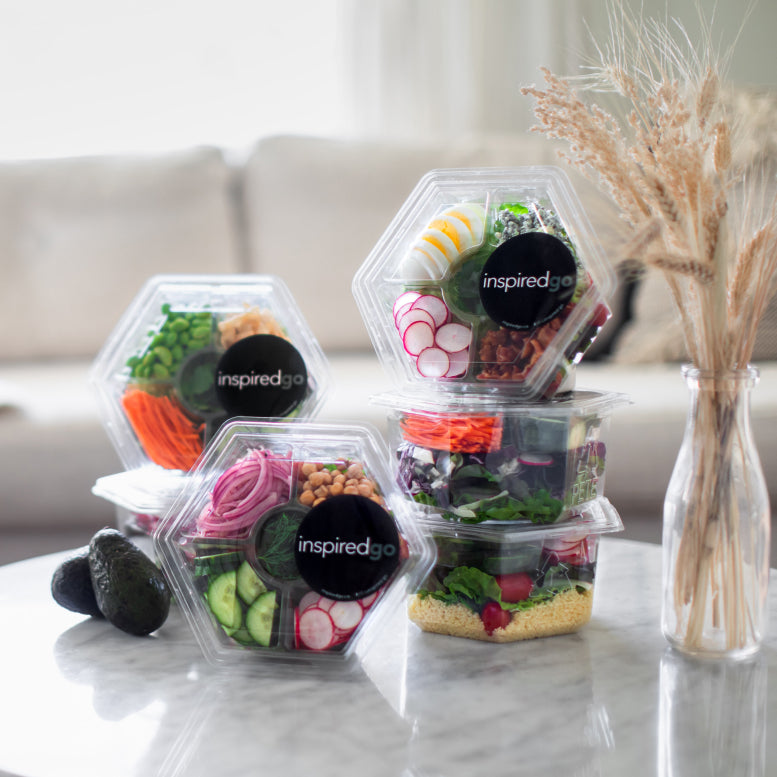What Is A Vegetarian Diet?
Table of Contents
1. Understanding the Vegetarian Diet and Its Benefits
2. What Is a Vegetarian Diet?
3. How Does a Vegetarian Diet Support Heart Health?
4. How Does Vegetarian Meal Delivery Save Time?
1. Understanding the Vegetarian Diet and Its Benefits
A vegetarian diet is a plant-based eating plan that excludes all forms of meat, including poultry, beef, pork, and fish. Some variations of this diet, such as lacto-vegetarian and ovo-vegetarian diets, also exclude certain animal byproducts like dairy and eggs, respectively. This diet focuses on consuming a variety of fruits, vegetables, grains, nuts, seeds, and legumes for balanced nutrition. It is a popular choice for individuals seeking a healthier lifestyle, as it has been linked to lower risks of heart disease, high blood pressure, diabetes, and obesity. Moreover, a vegetarian diet can also contribute to environmental sustainability by reducing the demand for resource-intensive meat production. However, it's crucial to plan meals carefully to ensure that you're getting all the essential nutrients. Fortunately, there are numerous vegetarian meal delivery services today, such as Inspired Go, that provide convenient, chef-crafted, and nutrient-dense vegetarian meals, making it easier to maintain this diet.
Order fresh salads today →


2. What Is a Vegetarian Diet?
A vegetarian diet focuses on plant-based foods such as fruits, vegetables, grains, legumes, nuts, and seeds while excluding meat, poultry, and fish. Depending on individual preferences, some vegetarian diets also include dairy products and eggs. This diet is widely recognized for its health benefits, including lower cholesterol levels, reduced risk of heart disease, and improved digestion. Vegetarian meal delivery services simplify following this lifestyle by offering fully prepared, ready-to-eat meals tailored to these dietary preferences. Each meal is crafted with protein-rich plant ingredients such as tofu, lentils, and beans to ensure balanced nutrition. Nutritional transparency, including clear labeling of macronutrients and calories, helps customers track their intake effectively. Vegetarian meal delivery eliminates the need for meal planning, grocery shopping, and cooking, making it easier to maintain a nutritious and satisfying diet.
Choose your salads and schedule delivery →
3. How Does a Vegetarian Diet Support Heart Health?
A vegetarian diet is known for its cardiovascular benefits, including reduced cholesterol levels, lower blood pressure, and decreased inflammation. Vegetarian meal delivery services prioritize heart-healthy ingredients like leafy greens, whole grains, nuts, seeds, and olive oil in their pre-prepared meals. These ingredients are rich in fiber, antioxidants, and essential fatty acids, which contribute to improved heart health. Subscription services ensure consistent access to balanced meals, eliminating reliance on unhealthy or processed foods. Transparent nutritional labeling provides clarity on sodium, fat, and calorie content, allowing customers to make informed choices. Vegetarian meal delivery supports long-term heart health with structured, nutrient-dense meal plans.
Get fresh salads and snacks delivered →
4. How Does Vegetarian Meal Delivery Save Time?
Inspired Go streamlines healthy eating through pre-prepared vegetarian meals that eliminate the need for grocery shopping, cooking, and cleanup. With subscription options, customers can schedule weekly deliveries, ensuring they always have access to nutritious, plant-based meals. Every dish arrives pre-portioned and ready to eat, removing the stress of portion control or recipe planning. Inspired Go’s transparent nutritional labeling also allows customers to track calories and macronutrients easily. Whether managing a busy professional life, a family schedule, or personal health goals, Inspired Go makes it simple to prioritize nutrition without compromising on time or convenience. These ready-to-eat meals support balanced eating with zero effort.
Try our fresh, ready-to-eat salads →
Frequently Asked Questions
A vegetarian diet focuses on plant-based foods, eliminating meat, poultry, and fish while including fruits, vegetables, grains, legumes, nuts, and seeds. Depending on the type of vegetarianism, it may also include animal-derived products like dairy and eggs. Popular variations include lacto-ovo vegetarian (includes eggs and dairy) and lacto-vegetarian (excludes eggs but includes dairy). The diet is often chosen for ethical, environmental, or health reasons and supports a nutrient-dense lifestyle when properly balanced.
Vegetarian foods include a wide variety of plant-based options like fruits, vegetables, whole grains, legumes, nuts, and seeds. Dairy products such as milk, cheese, and yogurt, as well as eggs, are included in lacto-ovo vegetarian diets. Vegetarian-friendly dishes range from hearty grain bowls and vegetable curries to pasta, soups, and salads. Many processed foods, such as chips or baked goods, can also be vegetarian, though reading labels is key to avoiding hidden animal-based ingredients.
Yes, many vegetarians eat eggs, depending on their dietary preference. Those following a lacto-ovo vegetarian diet include both eggs and dairy products, while lacto-vegetarians exclude eggs but consume dairy. Eggs are an excellent source of protein, vitamins, and minerals, making them a valuable addition to a vegetarian diet. However, vegans avoid eggs entirely, as their diet excludes all animal-derived products, including dairy and honey.
Vegetarians can meet their protein needs by incorporating a variety of plant-based and animal-free sources. Protein-rich options include legumes (lentils, chickpeas, black beans), tofu, tempeh, nuts, seeds, and whole grains like quinoa. For those who consume dairy and eggs, options like Greek yogurt, cheese, and eggs provide additional high-quality protein. Combining different plant proteins, such as rice and beans, ensures a complete amino acid profile, supporting muscle repair and overall health.
Yes, eggs and cheese are allowed on a lacto-ovo vegetarian diet, which includes both dairy products and eggs alongside plant-based foods. These ingredients are excellent sources of protein, calcium, and other essential nutrients. Lacto-vegetarians exclude eggs but include cheese and other dairy products. Vegans, however, do not consume eggs, cheese, or any other animal-derived products, focusing solely on plant-based foods and alternatives.

